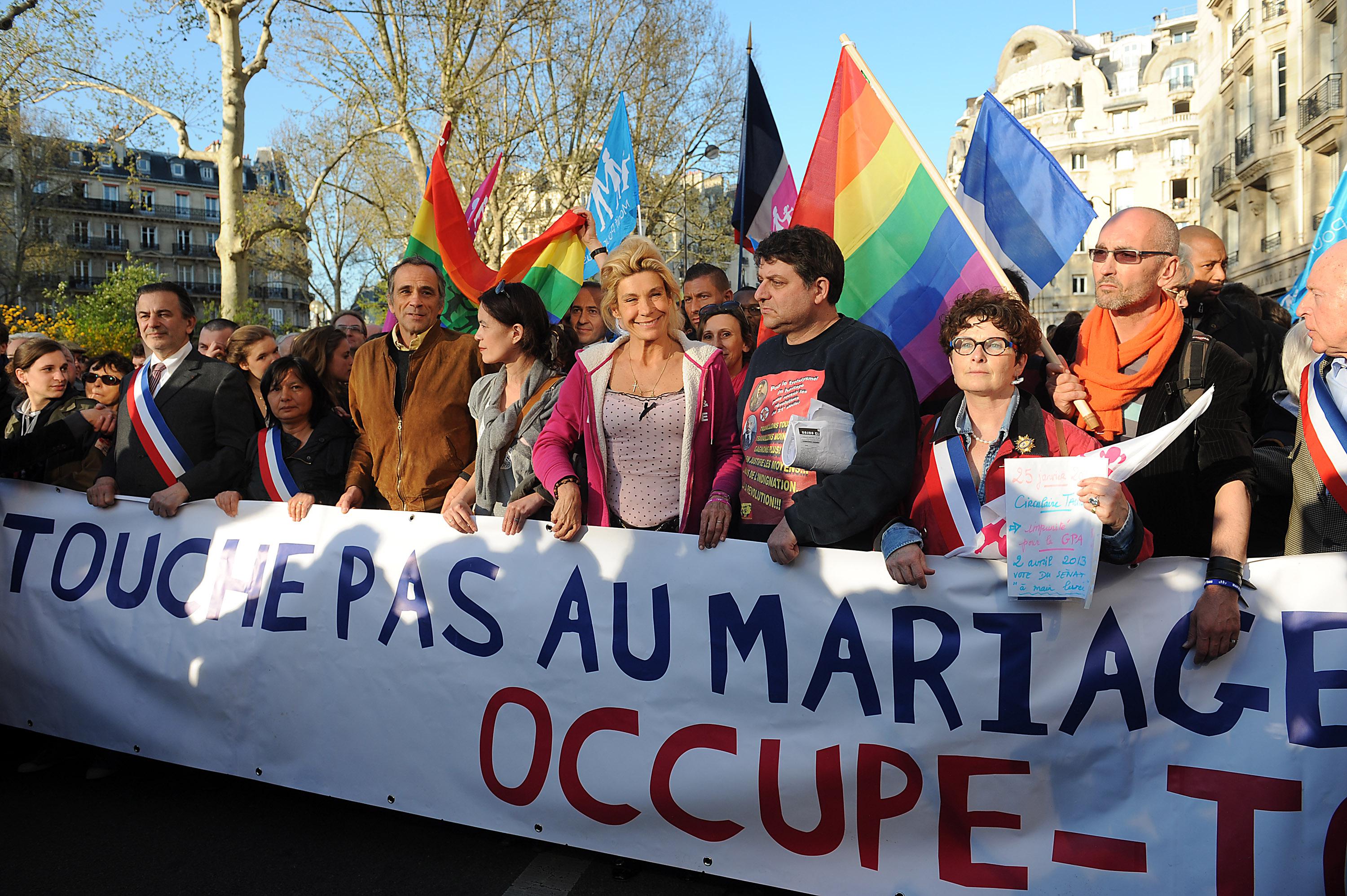That’s how New York Times journalist Lydia Polgreen reacted on Twitter Tuesday to the news that the French National Assembly had voted to approve same-sex marriage.
“Yeah, could have fooled me, France is so… Uhm, free?” replied one of her followers.
As a French journalist based in the United States, I find the cliché of an ultra-liberal France to be misguided. In the collective imagination of Americans everywhere, my promiscuous country celebrates love, any type of love, on all occasions—which should mean that it celebrates any type of sexual orientation. Unfortunately, that’s just not true.
The French may have a reputation for treating sex more casually than other nationalities, but there’s nothing casual about marriage—and when it comes to a key social reform, France has not lived up to its “free-spirit” reputation.
Though polls consistently show that a majority of the French are in favor of gay marriage, all but 10 of the conservative members of parliament voted against the “marriage for all” bill. Valérie Pécresse, a former minister of the Sarkozy administration, even vowed to “unmarry” gay couples once the right returned to power. In this respect, U.S. Republicans, dozens of whom signed a brief supporting same-sex unions at the end of February, appear to be more open-minded than their French peers.
Further proof that the French aren’t as liberal as they sound: The most controversial aspect of the bill that just passed is that it allows gay couples to adopt. That’s not something French society has come to terms with yet. According to a February Ifop poll, only 47 percent of my countrymen believe gays and lesbians should be able to adopt children, though 66 percent think they should be allowed to wed. Most reject the idea that gay couples should be allowed to use fertility treatments, which are currently only available to the straight. In the United States, on the other hand, more states allow homosexuals to adopt than to marry. Gay families seem to be a logical consequence of gay relationships for Americans—but not for the French.
The debate around same-sex marriage has shown France’s conservative underbelly. Homophobia has spiked since lawmakers started discussing the bill back in November 2012. In the past three months, SOS Homophobie reported almost as many calls about attacks against gay people as in the whole of 2011. At the beginning of April, a picture of a young man who had been assaulted for holding hands with his boyfriend in Paris went viral on Facebook: “It’s the face of homophobia,” the caption read.
So, until now, my country hasn’t been that “free,” if you ask me. What’s true is that most of the people protesting gay marriage are striving to look “modern” and “relaxed” about the issue. The woman who leads the “antis,” a humorist called Frigide Barjot (or “Crazy Frigid”), keeps reminding journalists she has “gay friends.” Before she battled LGBT rights, she was known for singing sexually explicit songs. Like France itself, she seemed liberal, until she proved she wasn’t.
Now that it actually has same-sex marriage, let’s hope France becomes as free as everyone seems to think it is.
